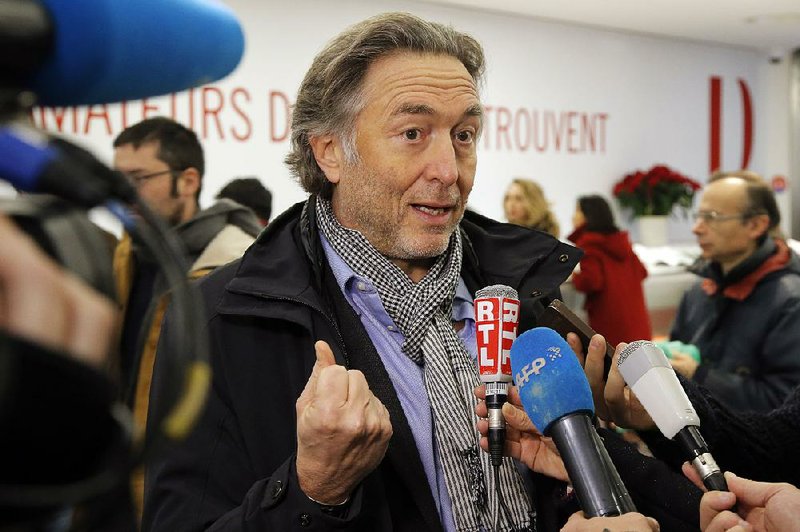PARIS -- The Native American Navajo tribe won its bid Monday to buy back seven sacred masks at a contested auction of tribal artifacts in Paris that netted more than a million dollars.
The objects for sale at the Drouot auction house included religious masks, colored in pigment, that are believed to have been used in Navajo wintertime healing ceremonies.
The sale went ahead despite efforts to halt it by the U.S. government and U.S. Sen. John McCain of Arizona.
The sale -- which totaled $1.12 million -- also included dozens of Hopi Kachina dolls and several striking Pueblo masks embellished with horse hair, bone and feathers, thought to be from the late 19th and early 20th centuries.
The Associated Press is not transmitting images of the objects because the Hopi have long kept the items out of public view and consider it sacrilegious for any images of the objects to appear.
The U.S. Embassy in Paris had asked Drouot to suspend the sale to allow Navajo and Hopi representatives to determine if they were stolen from the tribes. But Drouot refused, arguing that the auction was in accordance with the law -- and that a French tribunal had previously ruled that a similar sale was legal.
Navajo Nation Vice President Rex Lee Jim said the objects were not art but "living and breathing beings" that should not be traded commercially.
Jim, a medicine man who traveled to Paris for the auction with three other Navajo officials, said they were unable to determine the exact provenance of the artifacts but said they had to face the reality of the auction and buy them back.
"They are sacred masks ... and unfortunately they end up here. Whether that is legal or illegal ... we don't know. What we do know is that they are for sale," Jim said.
The Navajo Nation representatives bid for seven masks at the auction, winning them for $9,120 despite a bidding war with a private collector.
French art collector Armand Hui bid for several masks but said he backed down when he saw that tribal members had come in person to buy them back.
"I wanted to respect that," he said.
The lawyer representing the absent Hopi tribe, Pierre Servan-Schreiber, said the approaches of the Hopi and the Navajo were different and that the Hopi see the sale as sacrilege.
"Hopis were opposed to buying back their artifacts as they did not want to engage in the auction," Servan-Schreiber said.
The two tribes have traditionally been feuding neighbors in the northeastern corner of Arizona. The Hopi reservation is surrounded completely by the Navajo Nation, which also extends into Utah and New Mexico.
Navajo Nation spokesman Deswood Tome said it would be incumbent upon the leaders of the Navajo and Hopi tribes to discuss how to approach other sales of sacred items in foreign countries.
"If there are religious items that are sacred in the future, the leadership will have to determine what steps they will take," Tome said. "Buying these masks here today is a precedent that we've set."
Information for this article was contributed by Oleg Cetinic and Felicia Fonseca of The Associated Press.
A Section on 12/16/2014
